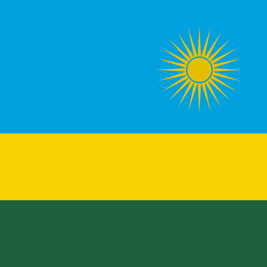The government of Rwanda has announced it will scrap the 18% value added tax (VAT) applied to sanitary pads. A 2017 study commissioned by the country’s education ministry showed that girls aged 16 and above were 8% more likely to drop out of school than boys, especially in rural areas.
The move follows lobbying from NGOs and feminist groups. Access to sanitary pads is seen as a key lever to keep girls in school and improve their educational outcomes. Especially in East Africa, where initiatives in Kenya, Ethiopia and Tanzania are all seeking to break taboos around menstruation and make sanitary pads more affordable. This is a particular issue for poorer and rural areas.
In August 2013, the East African Legislative Assembly (EALA) passed a resolution urging all partner states to waive taxes on sanitary pads. Kenya removed VAT on sanitary pads in 2005, while Tanzania removed VAT on sanitary pads in 2018. Elsewhere, the South African government removed VAT on sanitary pads in April 2019.
It is not a given that removing VAT will be a success. In Tanzania, the government re-instituted VAT on sanitary pads in 2019, after finding that retailers kept prices at the same level. A further issue is that if sanitary pads are imported they will also be subject to a series of import tariffs and duties – as is the case in Ethiopia, for example. Even domestically manufactured, “affordable” pads, are priced beyond the budget of the poorest consumers.
The underlying objective of these programmes is to improve participation in education – the single most important factor leading to the growth of the middle class. The Rwandan government has a strategic plan pull various levers that support income growth and productivity – including rolling out access to electricity and WiFi. Rwanda has successfully positioned itself to the NGO community as a reliable proving ground for socio-economic policies designed to accelerate income growth and productivity. The real challenge is whether there is a good enough supply of affordable sanitary products – almost all of which have to be imported – and the extent to which the government can force price cuts on a fragmented, informal retail landscape to prevent a recurrence of what happened in Tanzania.










